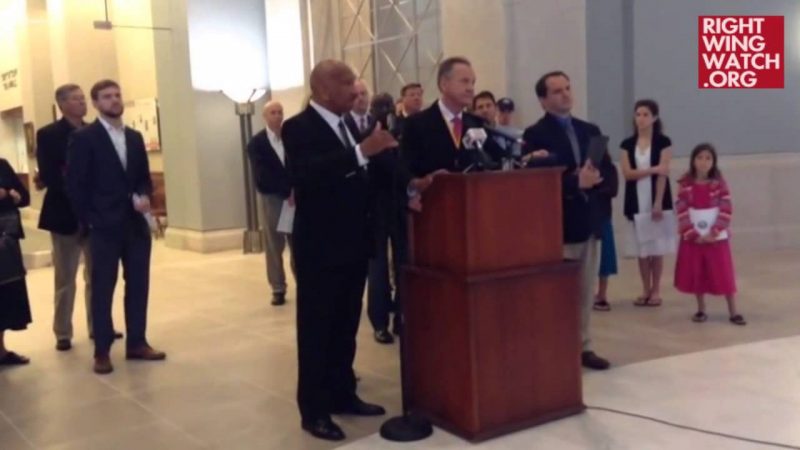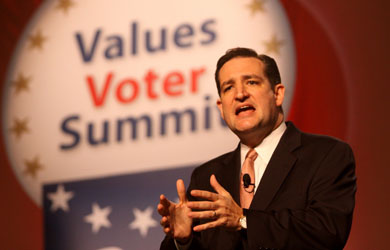James Dobson decided to “commemorate Black History Month” on his radio program by dedicating today’s program to discussing William Wilberforce … and to do so by explicitly linking the Religious Right’s fight against Planned Parenthood to Wilberforce’s fight against the slave trade:
Dobson: Into that world comes a young William Wilberforce – a young Parliamentarian – who saw this [the slave trade] and said this is evil, this is wrong, I will do what I can to fight it.
In some ways, it’s very similar to our situation here with regard to abortion because that’s a multi-million dollar industry. You know the money that even our own Congress gives to Planned Parenthood is reminiscent of the evil that was expressed in that day because other Parliament members didn’t want to touch that very lucrative business. And so here you’ve got Wilberforce standing up and saying “this is wrong” and he was vilified and attacked and discredited and marginalized. It sounds kind of familiar to what happens to pro-life people today.
I have to say that I am getting increasingly fed up with hearing from conservative Christian biblical literalists today about how they are supposedly the ideological and moral heirs to the abolitionist movement because such claims are laughable.
In the last few months, I have read several books about the role of religion and the Bible in the fight over slavery, including “Noah’s Curse: The Biblical Justification of American Slavery,” “Religion and the Antebellum Debate over Slavery,” “The Civil War as a Theological Crisis,” and “When Slavery Was Called Freedom: Evangelicalism, Proslavery, and the Causes of the Civil War” … and I just want to highlight a few passages from this latter book which demonstrates how proslavery advocates relied heavily on the Bible to justify the legitimacy of the institution of slavery:
Most ministers who galvanized southern moral support for slaveholding denied that they were “proslavery.” The moniker fits nonetheless. These men repeatedly insisted that good Christians could hold slaves, that slaveholding was moral, and that virtuous acts could result in one’s becoming a slaveholder … Good slaveholders, they maintained, gave the institution its character – that is, goodness. As moral individuals, they were more powerful than institutions. This formulation allowed proslavery spokesmen to denounce the historically evil institution of slavery while defending southern practices: slaveholders in the evil form of slavery were bad men; the southerners were good, and the source their wealth therefore untainted. Good – and especially evangelical – slaveholders supposedly redeemed the institution of slavery.
…
Southerners thought abolitionists either did not understand the Bible or did not know God”s will, and they suspected them of perverting both. From the southern perspective the Bible offered an ideal source of vindication. If the Bible explicitly ordained slaveholding, as southern churchmen were sure it did, then to condemn slaveholding outright as a sin was to insult God’s Word and betray His Will … Most defenders of slavery believed that God had “put” slaves into their hands. The Divine purpose, they thought, was that the master train slaves for “self-dependence and self-government.”








